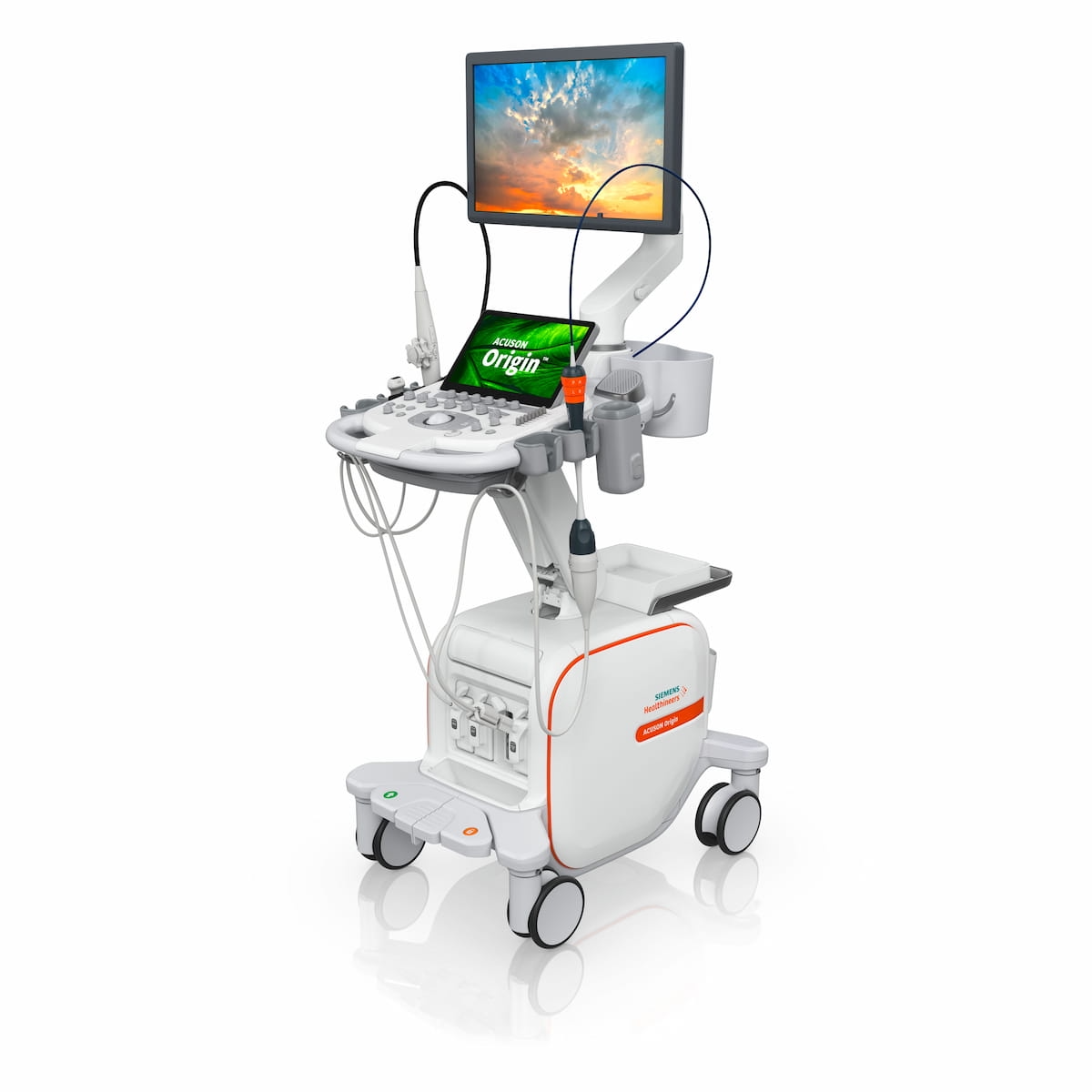FDA Clears AI-Powered Cardiovascular Ultrasound System from Siemens Healthineers
Offering a variety of AI features for streamlined workflow and enhanced visualization, the Acuson Origin ultrasound system also features the newly FDA-cleared AcuNav Lumos 4D ICE (intracardiac echocardiography) catheter.
The Food and Drug Administration (FDA) has granted 510(k) clearance for the Acuson Origin cardiovascular ultrasound system and the accompanying AcuNav Lumos 4D ICE (intracardiac echocardiography) catheter.
The Acuson Origin system reportedly bolsters workflow efficiency for transthoracic echocardiography (TTE) and transesophageal echocardiography (TEE) with over 5,600 artificial intelligence (AI) automated measurements, according to Siemens Healthineers, the manufacturer of the device.
The Acuson Origin ultrasound system reportedly bolsters workflow efficiency for transthoracic echocardiography (TTE) and transesophageal echocardiography (TEE) with over 5,600 artificial intelligence (AI ) automated measurements, according to Siemens Healthineers, the manufacturer of the device. (Image courtesy of Siemens Healthineers.)

AI Assist, one of the new TTE features for the Acuson Origin, provides automated positioning of color and spectral Doppler regions of interest. Offering real-time cardiac view recognition, Siemens Healthineers said the 4D HeartAI feature has a 98 percent accuracy for the identification and alignment of multiplanar reconstruction (MPR).
“With its advanced AI features and potential to enhance diagnostic accuracy as well as patient care, the Acuson Origin is positioned to reshape health care’s approach to cardiovascular imaging,” noted David Zollinger, the head of cardiovascular ultrasound at Siemens Healthineers.
Providing advanced imaging for complex heart procedures, Siemens Healthineers noted the AcuNav Lumos catheter promotes enhanced accuracy of anatomical assessments with MPR biplane imaging. The device’s real-time 4D color Doppler capabilities also facilitate improved leak detection, according to Siemens Healthineers.
Newsletter
Stay at the forefront of radiology with the Diagnostic Imaging newsletter, delivering the latest news, clinical insights, and imaging advancements for today’s radiologists.
Stroke MRI Study Assesses Impact of Motion Artifacts Upon AI and Radiologist Lesion Detection
July 16th 2025Noting a 7.4 percent incidence of motion artifacts on brain MRI scans for suspected stroke patients, the authors of a new study found that motion artifacts can reduce radiologist and AI accuracy for detecting hemorrhagic lesions.